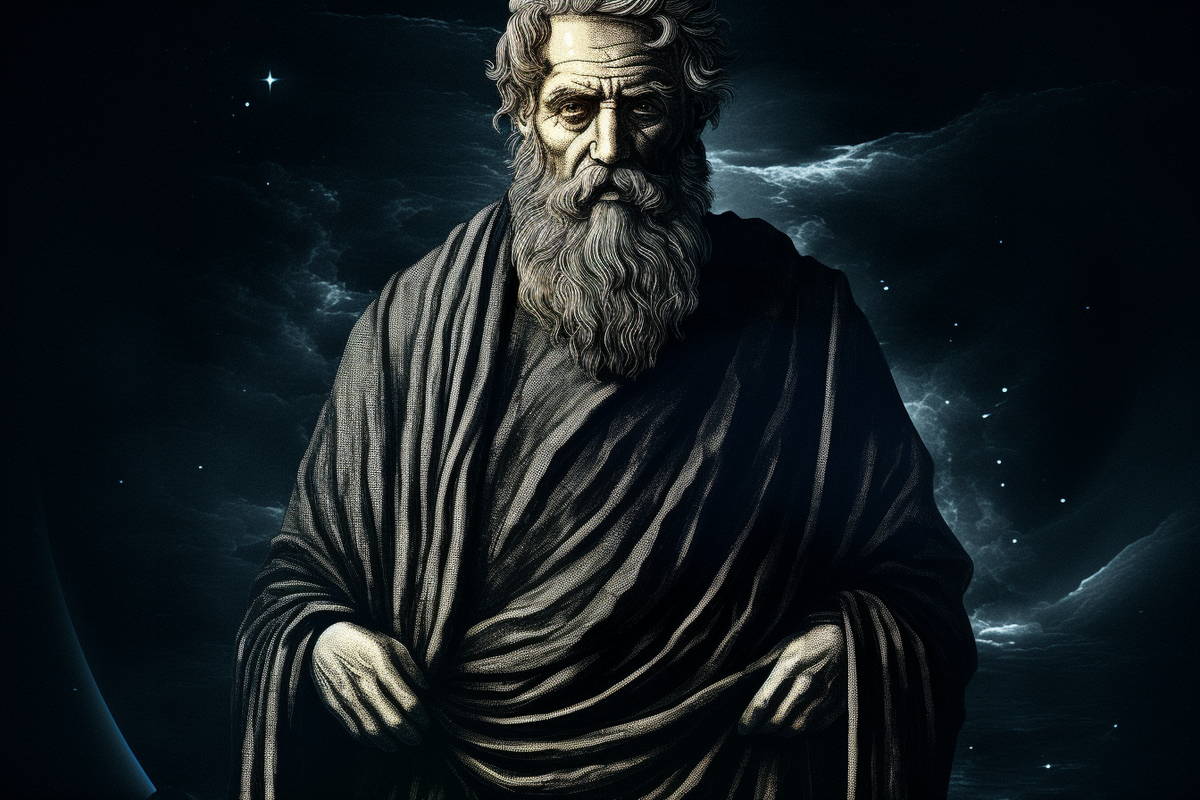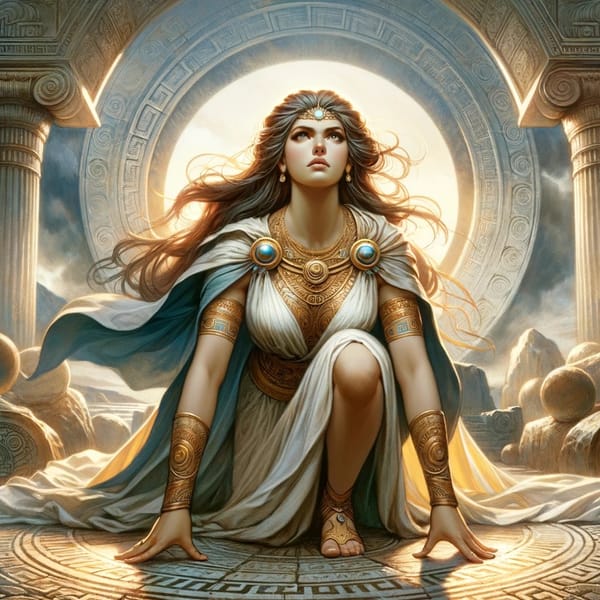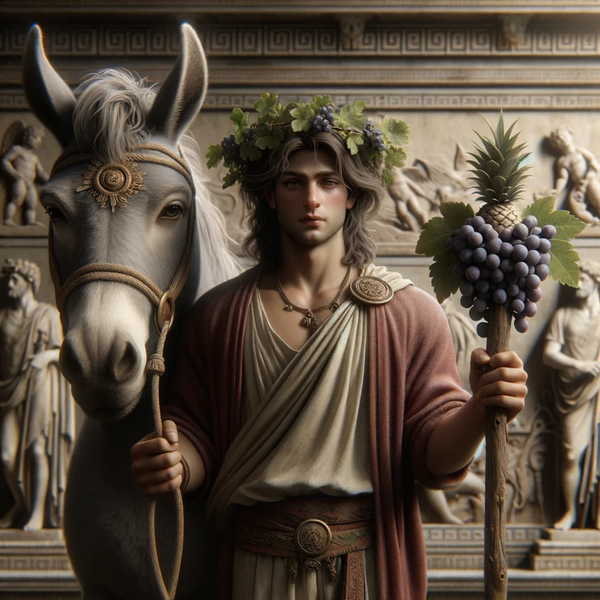Xenophanes of Colophon (c. 570 - c.478 BC)

Xenophanes of Colophon, a pre-Socratic philosopher, poet, and critic, was pivotal in the transition from mythopoetic to philosophical thought in ancient Greece. His work laid the groundwork for the development of monotheistic concepts in a culture steeped in polytheistic traditions and provided early criticism of anthropomorphism in theology.
Biographical Information
Xenophanes was born in Colophon, an Ionian city of Asia Minor, around 570 BCE. Living during an era of intellectual ferment, he travelled widely, eventually settling in Elea and influencing the philosophical school that would come to bear the name of this city. His life spanned tumultuous times, including the rise and fall of tyrannies in Ionia and the Persian invasion of Greece.
Philosophical Contributions
Theology
Challenging the Homeric and Hesiodic pantheon, Xenophanes is renowned for his monotheistic assertions, positing a singular, supreme being that is unlike mortals in body or mind. His critique of divine anthropomorphism was both theological and sociocultural, reflecting his views on the limitations of human knowledge and the projection of human traits onto the divine.
Quotations:
- "There is one god, among gods and men the greatest, not at all like mortals in body or mind."
Epistemology
Xenophanes was a precursor to epistemological inquiry, questioning the certainty of human knowledge and introducing a form of proto-agnosticism or relativism. He is noted for his assertion that even if one were to express the complete truth, they would not know it; all is opinion.
Quotations:
- "No man knows, or will ever know, the truth about the gods and about everything I speak of; for even if one happened to say the complete truth, nevertheless one would not know it, but opinion is allotted to all."
Critique of Anthropomorphism
His most famous philosophical legacy is his critique of anthropomorphic gods. He argued that humans create gods in their own image, attributing to them human characteristics and biases.
Quotations:
- "Ethiopians say that their gods are snub-nosed and black; Thracians that theirs have blue eyes and red hair."
Xenophanes’ Works
The majority of Xenophanes' work survives only in fragments, recorded by later writers. No complete writings are extant, making reconstruction of his thought reliant on interpretation and the context provided by commentators.
Scholarly Analysis
Xenophanes and Presocratic Philosophy
Academic discussion around Xenophanes often focuses on his role in the transition from mythological to rational explanations of the world. His challenges to traditional religious narratives are seen as a significant step towards the development of a more philosophical discourse in Greece.
Comparative Studies
Scholars have long debated Xenophanes’ place within the broader spectrum of Greek philosophy, often contrasting his views with those of Pythagoras and Heraclitus, contemporaries who offered different responses to the nature of the gods and the universe.
Modern Interpretations
Xenophanes is frequently studied in contemporary philosophical literature for his contributions to religious criticism and his foresight regarding the limitations of human knowledge—themes that are highly relevant in modern philosophical discourse.
Legacy and Influence
Xenophanes' influence extended to later philosophical schools, notably the Eleatics, who further developed the concept of the unity and immutability of being. He also indirectly impacted the development of Platonic and Aristotelian thought, which would grapple with his scepticism of sensory experience and human knowledge.
He was a revolutionary thinker whose works sparked a shift towards a more critical and rational approach to theology and epistemology in ancient Greece. His reflections on divine nature and human understanding laid foundational stones for Western philosophical tradition.





